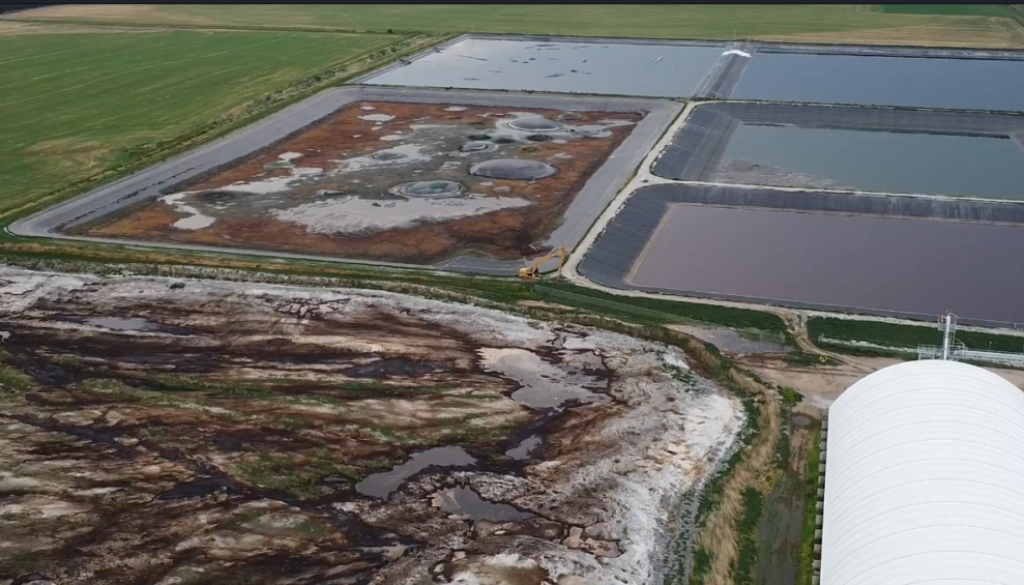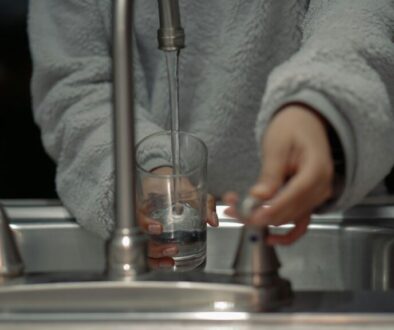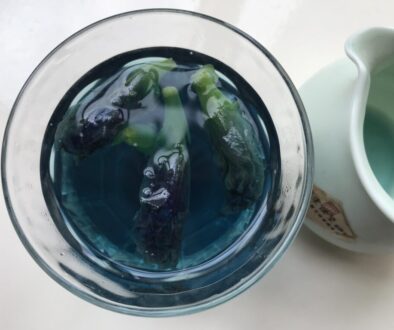Nebraska residents call for tighter insecticide regulations after contamination event
More than four years after a massive contamination event tied to pesticide-coated farm seeds rocked a rural Nebraska community, environmental and public health advocates are calling on state officials to remove regulatory exemptions for the coated seeds, and to monitor waterways for the pesticide pollutants.
Supporters of the action have launched a petition drive, and plan to protest at the Nebraska state capitol this weekend as part of an observance of April 22 as Earth Day, and as part of national protests against actions by the Trump administration.
The action reflects persistent frustrations and fears among residents in the area of Mead, Nebraska, the site of a former ethanol plant that used discarded seeds coated with neonicotinoids (neonics) as feedstock and failed to properly dispose of the neonic-laden waste. The plant accumulated thousands of pounds of the waste onsite, failed to prevent it from leaking into waterways, and spread some on farm fields as a soil-conditioner.
Research has shown that neonics, which are types of neurotoxic insecticides, are known to be harmful to insects and a range of species, including potentially humans.
While the contamination crisis in Mead resulted from activities at one plant, the contamination concerns are part of a nationwide battle over neonics and neonic-treated seeds. The seeds are marketed by several of the world’s largest seed companies as tools for farmers to use to repel unwanted insects that threaten crops, and are largely exempted from specific US regulatory oversight.
“This is a window of opportunity where there is some nationwide focus on the issue,” said Janece Mollhoff, an area resident who lives downstream from Mead who is helping lead the petition drive. “We’re not sure if it will change the Governor’s mind, but we do want to raise awareness of the issue with folks in Nebraska. It’s a Big Ag issue and not a partisan issue, necessarily.”
The petition specifically calls on the state to establish regulations “to ensure that these chemicals are subject to rigorous oversight, especially in the production of food crops,” and to monitor for the chemicals in surface and groundwater.
“Seed treatment results in absorption of these chemicals into all plant parts including pollen and fruit where the impact on pollinator species as bees, butterflies, and other beneficial insects have proved to be devastating,” the petition states. “Neonicotinoids move rapidly through the soil with rain water posing threats to surface waters and ground water. Exposure to neonicotinoids has been linked to endocrine disruption, reproductive disorders, birth defects of the heart and brain, learning disorders, ADHD, autism spectrum disorder and nervous system damage in human populations.”
Threats to pollinators
The US is currently in the midst of what beekeepers are calling the worst bee die-off in recorded history, with hundreds of millions of bees across the US wiped out in the last eight months. Neonics are a major threat to bees and other pollinators, with commonly used neonic insecticides threatening more than 200 endangered bee species with extinction, according to a 2023 study by the US Environmental Protection Agency (EPA).
The European Union in 2018 banned outdoor use of three popular neonics – clothianidin, imidacloprid, and thiamethoxam, with the European Court of Justice banning emergency exemptions for neonic-treated seeds in 2023. Twelve US states have passed laws that limit the use of neonics, with Washington last March becoming the most recent to take action.
In February, the nonprofit Center for Biological Diversity presented a separate petition to the Trump administration’s Make America Healthy Again Commission, an effort to address the nation’s public health crisis led by US Secretary of Health and Human Services Robert F. Kennedy Jr. As part of that agenda, the petition asks the administration to “tackle the scourge of extraordinarily toxic pesticides that remain ever-present in our food, our water and our environment” by banning “extraordinarily toxic pesticides” from use in food and on food crops, among other measures.
The US EPA has an exemption in place for seeds coated with neonics, stating that the seeds treated with these pesticides do not need to be registered under the Federal Insecticide, Fungicide, and Rodenticide Act. In November 2024, a federal court upheld the exemption following a lawsuit by environmental groups trying to force the the EPA to register neonic-treated seeds as individual pesticide products.
Neonic-treated seeds are beneficial because they reduce the amount of pesticide farmers need to spray on crops, according to the agrochemical trade association group CropLife.
“All neonicotinoids have been extensively tested to ensure that, when used properly, only target pests are impacted,” says CropLife’s website. “Numerous field studies and real life examples show that bee health is not related to the use of seed treatments.”
“Potentially compromised health”
Nebraska officials forced the AltEn ethanol plant in Mead to close in 2021 after citing the plant for numerous violations and after state officials recorded neonic pesticides in AltEn waste at levels many times higher than what is considered safe.
Following the AltEn’s closure, a group of six agrochemical companies that formerly supplied the company with their unwanted supplies of neonic-treated seed, including Bayer, Corteva Agriscience, and Syngenta, have been working with state officials to clean up the waste.
To date, the group has removed more than 55,000 cubic yards of “wet cake” waste, an ethanol production byproduct, from the site, trucking it to the Pheasant Point landfill. The site’s wet cake has been designated as “non-hazardous.” According to the group’s website, there has been no evidence that neonic-laced waste from the plant has impacted local drinking water, while groundwater sampling has shown one pesticide exceeding screening levels at a location in the northwest part of the site.
“They’re making pretty good progress,” said Mollhoff. “They’re filtering all the water in the lagoons. We’re a little concerned because they’re land-applying it to farm fields all around the area, but evidently they’re testing it and they’re testing the fields that they’re applying it to.”
“The faster they can get that stuff off the site the better,” she added, noting that the AltEn site where the waste has accumulated is not lined. “As long as it’s sitting there there’s a probability that it’s leaching down into the groundwater,” said Mollhoff.
The group will not work to remediate waterways beyond the AltEn site that were contaminated by its activities until they’ve completed the onsite cleanup, she said.
In a study published April 7 in the journal Environmental Health in which researchers surveyed over 450 local residents, 82% of respondents said they remained concerned about contaminants from the AltEn plant affecting the water, while many also expressed concerns about air and soil quality. Almost three-quarters of respondents said they felt “some or a lot of stress related to potentially compromised health.”
“The top community need was wanting the environment cleaned up, including proper removal of waste and land restoration,” the authors wrote.
 EWG
EWG



April 19, 2025 @ 8:26 am
Is there a way to tell how many people have read this story? I can see how many have shared it.
April 18, 2025 @ 6:51 pm
The local nrd knew of the issue and claimed they were not able to do any thing. Passed the buck at the country supervisor level also. The state knew of the issues and had a blind eye sad that the go along to get along prevails this often in the state